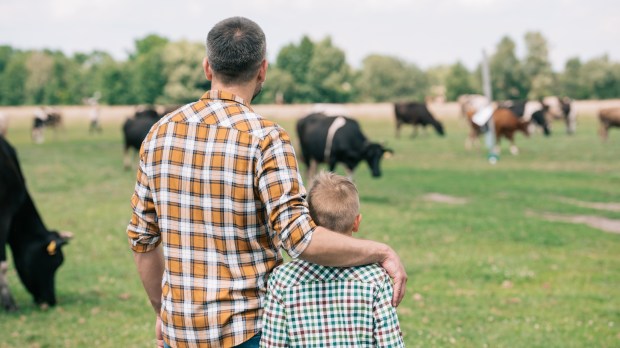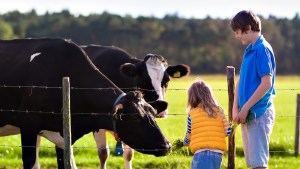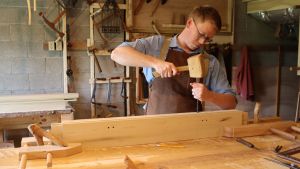Until you look for it, you don’t notice how many biblical passages and liturgical phrases refer to agriculture.
“Fruit of the earth and work of human hands.” “Fruit of the vine.” “The wheat from the chaff.” “The seed that fell on good soil.” Olive oil for chrism. Grapes and grain for the Blessed Sacrament.
Once you notice, suddenly you see it everywhere.
That’s not a coincidence, says Jason Craig, who runs a Catholic homestead called St. Joseph’s Farm. “Catholicism and the liturgical year have a deep relationship to the rhythm of the land.”
That’s part of the reason Jason and his family feel deeply called to homesteading as Catholics.
“As a family, we felt called to this way of life and to share it with other people,” he said in an interview with Aleteia.
“We live in such a digital world, disconnected from reality. We need a place where people can come to see what this life looks like.”
Even more importantly, his physical work on his homestead reveals to him God’s plan and purpose. As a Catholic, he has a strong sense of spiritual mission in homesteading.
“There’s an essential connection between our relationship with the land and our relationship with God. God reveals Himself in the rhythms and orders of nature.”
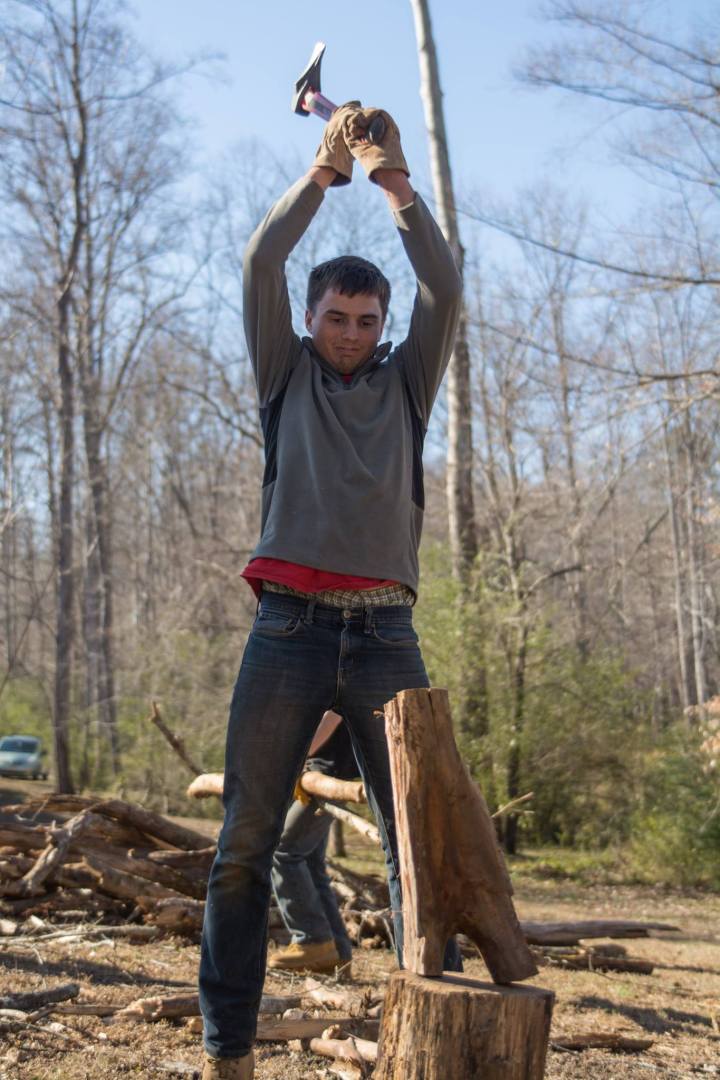
Besides homesteading, Jason is the executive director of Fraternus, a Catholic brotherhood and mentorship program. He’s also the founder and editor of Sword&Spade, a quarterly print magazine and book selection service for men.
But it’s in homesteading that he finds deep satisfaction in working with his hands alongside his wife and seven children. Years ago, as a young father, “I couldn’t imagine not having work to do, real work, with substance to it and meaning.”
His homestead has become “a place for our family to be integrated in our work and connection to God.”
So what is homesteading, exactly?
There’s a big difference between homesteading and farming, Jason explained.
Farmers grow crops or raise livestock primarily to sell to others. But homesteaders grow crops and raise livestock to provide for and feed their own families.
Homesteading is on the rise lately, so if you’re one of the many Americans who’s ever considered it, you’ll want to check out Jason’s homestead, St. Joseph’s Farm.
St. Joseph’s Farm is a teaching farm in Western North Carolina that focuses on traditional husbandry, skills, and culture “to help men regain sanity and reconnect with reality in a world of artificiality.” At the farm, Jason works mostly with father-son weekends and also homesteading conference weekends.
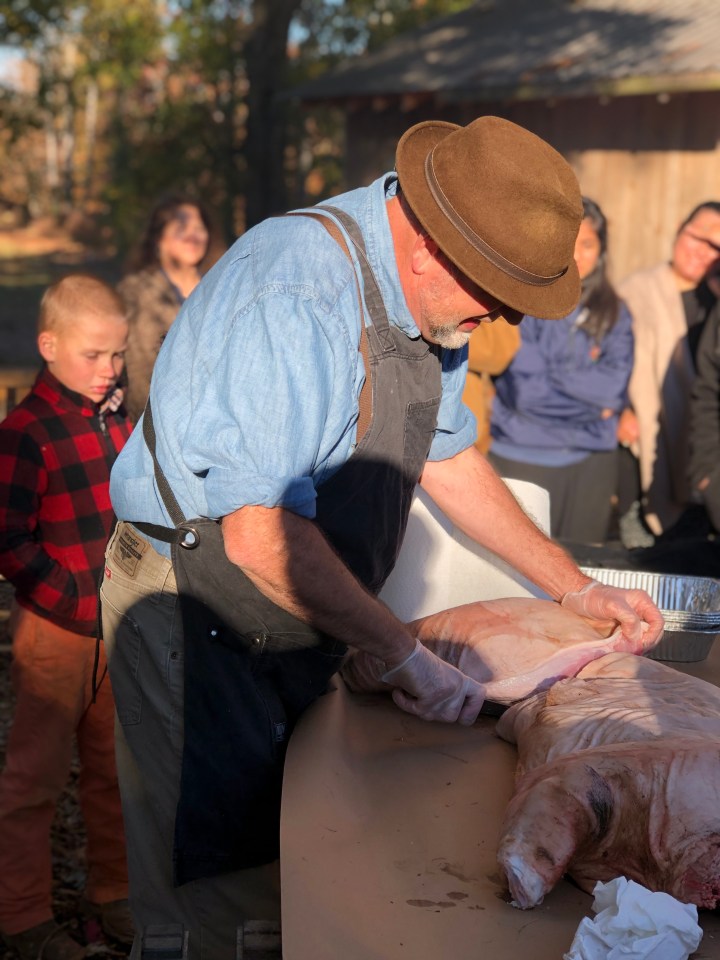
His upcoming Catholic homestead conferences this year will take place March 18-20 and June 10-12. The next father-son weekend (sons age 12+) will be May 13-15.
The homestead conferences include hands-on activities and discussions on the following topics:
- Basics of Cows (Dairy & Beef)
- Slaughtering and Butchering (Live Pig Slaughter)
- Permaculture & Pasture Management
- Gardening for the Home Kitchen and Preservation
- Beekeeping (Beginner and Advance Classes)
- Candle-making
- Soap-making
- Prudent Preparedness
“We provide a place where you’re able to learn and know that you can do it too,” Jason said. “The atmosphere of Catholics all there for the good of our families gives it a good ethos.”
The father-son weekends include structured skills-based activities such as processing wood and shooting (target or skeet based on ages). There’s also plenty of free time for fathers and sons to enjoy each other’s company.
“All the things that we do lend themselves to a father and son having a great time,” he said.
“There’s no orchestrated artificial experience designed to solicit the appropriate emotional response. It’s real work. It’s not a playground; it’s real, life-and-death stuff here, and that context helps bring up big topics. You can’t talk these things into a kid; they have to be experienced.”
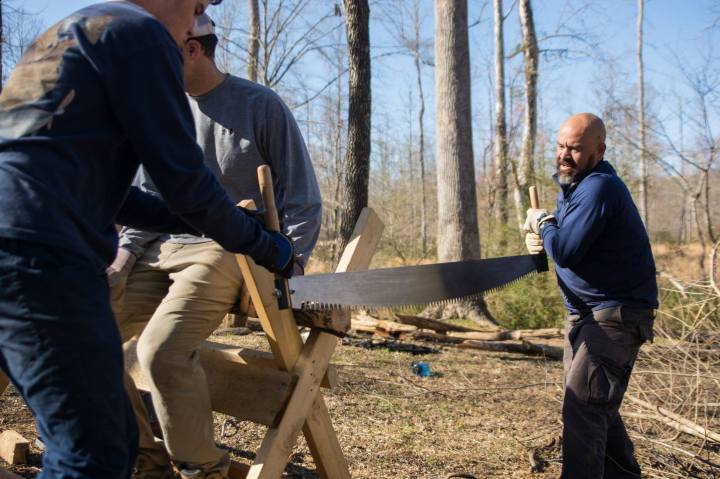
St. Benedict wrote in his famous Rule, “When they live by the labor of their hands, as our fathers and the apostles did, then they are really monks.”
There is something about manual labor that clears the head and uplifts the soul. Especially for Catholics, this work can bring a deeper understanding of God’s Word and draw us closer to Christ.
If that sounds like what you’re looking for, perhaps you’ll find it on a visit to the Craigs’ homestead in the hills of Western North Carolina.
